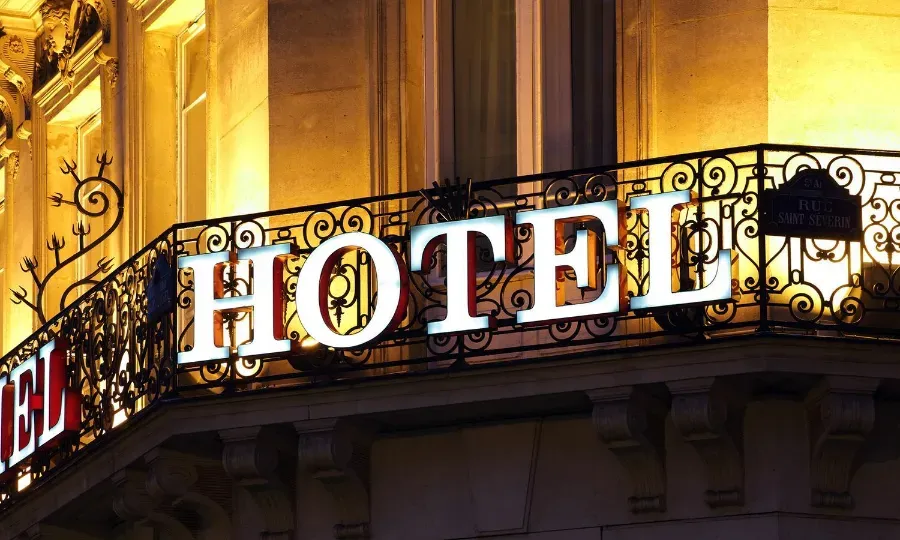Why Hotels Should Apply Big Data Analytics To Provide a Unique Guest Experience

For luxury hotels, it is all about exceeding the expectations of their guests. The single most important aspect for hoteliers is to provide a great experience and ensure that their guests are satisfied. During their guests’ customer journey massive amounts of data are generated and hoteliers can now improve their high-quality service even more with a well-thought Digital Transformation Strategy. Unfortunately, many hotels are still struggling with their data and/or do not make the most of it.
There are however also some great examples of hotel chains moving in the right direction. Big Data can result in improved customer satisfaction, personalized marketing campaigns and offers so that the right guests book the right room at the right moment and at the right rate. In addition, Big Data results in a boost in employee productivity and more efficient operations. The advantages of Big Data for the hotel industry are enormous.
Deep customer insights can lead to improved guest satisfaction and an unforgettable experience. Making these insights available to all levels and departments within the hotel is crucial. It allows the concierge to know which local tours to recommend that fit your preferences. It allows the restaurant departments to predict which menu items are likely to be ordered, based for example on the local weather. It allows the reservations department to predict the optimal rate for a room and sales and marketing to create tailored messages across different (social) networks and send truly personalized email campaigns. Let’s dive a bit deeper in some possibilities:
The right room at the right rate
Yield management is nothing new in the hotel industry. Providing different rates to different customers has been done for ages and with success. Big Data offers hotels the possibility to take revenue management a giant leap forward and start offering truly personalized prices and rooms to guests. The massive growth in booking websites, hotel review websites such as TripAdvisor and Yelp and the ever-growing list of social media networks offer a lot of potential. Combined with hotels’ own CRM systems and/or loyalty programs there is a lot of data that can be used to optimize revenue management.
According to a renowned study by Amadeus (called: ‘At the Big Data Crossroads: turning towards a smarter travel experience’), the hotel chain Marriot has been using Big Data Analytics to start predicting the optimal price of its rooms to fill its hotels. They do this by using improved revenue management algorithms that can deal with data a lot faster, by combining different data sets and making these insights available to all levels to improve decision-making.
The American hotel chain Denihan goes even a step further. They used IBM Big Data Analytics software to maximize profit and revenue across their 3.450 rooms by combing their own data sets and data from for example review sites, blogs and/or social network website. They understand the likes and dislikes of their guests, optimize their offering and adjust the room rates accordingly. This allowed Denihan New York hotels, for example, to double the room rate during the 2013 United Nations Assembly Week.
Mobile Big Data Throughout the Hotel
More and more hotels have developed mobile Apps that guests can use to book a hotel room. These apps, however, offer vast more possibilities for guests if developed correctly. It could Walt Disney has developed the MyMagic+ system and think about what this could mean for mobile hotel applications.
So, from a guest perspective, mobile offers a lot of convenience. From an employee perspective, it can make life a lot easier for the staff while at the same time increase customer satisfaction. Providing the housekeeping department with smart devices, for example, will allow them to know, in real-time, that you prefer an extra pillow or an extra light. Kempinski and Hyatt in Dubai already use such applications for their hotels.
Most of the staff within hotels do not have an office or a computer so providing them with real-time guest information should be done on-the-go. Although this requires a different approach and a different way of presenting the insights, placing user-friendly analytics in the hands of guest-facing employees will definitely improve customer satisfaction.
More Efficient Hotel Operations
From a hotel operations point of view, Big Data offers also many different solutions. Big Data can be used to reduce your energy bill for example. By combining data from 50 different sources, including electricity rates, weather data and a building’s energy consumption, two InterContinental hotels in San Francisco managed to reduce their energy costs by 10-15%. They created detailed energy profiles for their buildings and using a predictive algorithm they decided whether to use an onsite battery module or receive power from the grid.
Hotels should also move into IT operations analytics, which is especially relevant for chains that operate their own booking engine. A server that breaks down or a booking engine that is inaccessible could result in lost bookings and therefore lost revenue. IT operations analytics monitors a hotel’s complete IT environment, including the different relations between applications and hardware and can predict when things are about to go wrong. Advanced IT operations analytics can even solve problems automatically before they occur. This could save a lot of money because IT that’s not working will result in bad customer experience.
Of course, the examples given here are just a few of the massive possibilities that big data has to offer for the hotel industry. Having a background in hospitality myself, I know the importance of exceeding guests’ expectations and offering an unforgettable experience at all times. Big Data can help achieve this.





